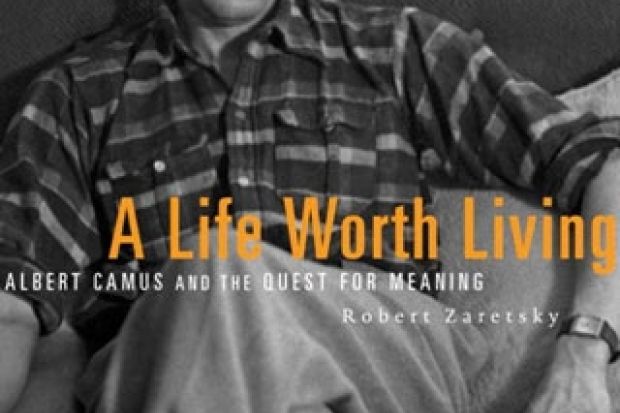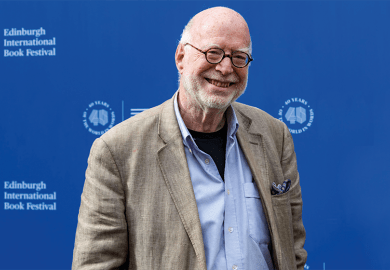“In the middle of winter, I at last discovered that there was in me an invincible summer,” wrote Albert Camus in the essay “Return to Tipasa”, thus warming to his life’s theme: “Yes, there is beauty and there are the humiliated. Whatever the difficulties the enterprise may present, I would like never to be unfaithful either to one or the other.” As Robert Zaretsky’s celebration of the Nobel laureate’s all-too-short life testifies, this was a recurring motif: against a Mediterranean backdrop, an abiding concern for humanity’s plagued and voiceless.
Both principle and place provide pivotal moorings for Camus, rather more than as the decontextualised meme he has become: “I know of only one duty, and that is to love”; “I rebel; therefore I exist”, etc, etc. His lapidary phrasemaking may lend itself to internet bowdlerising, but as A Life Worth Living emphasises, he should be remembered as a leading 20th-century intellectual, not simply humanism’s favourite quote generator.
Some of these contexts are incisively treated here – whether pairing Camus with another “democratic socialist”, George Orwell, or the extended back-story to the Sisyphean myth in the chapter “Absurdity” – while others seem rather more haphazard and ill-judged. Why focus on the myth of Prometheus in the chapter “Measure”, instead of the summary executions of collaborators in post-liberation France that caused Camus to recalibrate his ideas on the death penalty? The latter events are barely sketched in the chapter “Fidelity” – which, as might be expected, says too little on Camus’ affairs.
More unsatisfactory still is the bookending of the theme of “Revolt” with the 2011 death by immolation of the Tunisian fruit vendor who inspired the Arab Spring, Mohamed Bouazizi, who, hazards Zaretsky, “had most probably not read Camus”. But even if he had read his fellow North African (which seems to be the point of the attempted parallel), Bouazizi’s act was as distant from the metaphysical rebellion touted by Camus’ final philosophical(ish) tract, The Rebel, as Zaretsky’s extended hymn on Job is to Camus, that most devout of unbelievers.
Surer footing would have been afforded by focusing on Camus’ prescience on Algeria. He took the side of neither pieds noirs nor indigenes in what he termed, in 1955, a “fratricidal struggle”, and he called consistently for dialogue and an end to the killing of civilians. This was of a piece with his stoic rejection of nuclear “peace” a decade earlier, and his decrying of the bloodletting in Hungary in the following year – both high-stakes debates in which he looks, to posterity, about as right as it was possible to be at the time.
Scarcely a linear biography, Zaretsky’s thematic study nonetheless convinces that a stubborn defence of the meek was central to the indefatigability that won Camus admirers and enemies in equal measure. Many of the latter seethed around the writing of “Return to Tipasa”, which was penned during a “particularly harrowing time”. The year was 1953. East Berlin was seized by unrest. Albeit for different reasons, so too was France’s Left Bank, convulsed over the breakdown of Camus and Sartre’s friendship. The issue, publicly at least, was Soviet repression. While Sartre and his comrades were willing to have as many eggs broken as necessary to make the communist omelette, Camus declared in his 1957 Nobel Prize speech that the writer was not “in the service of those who make history; he is at the service of those who suffer it”.
Such differences were profound both then and now: could peaceful ends ever justify violent means? The post-war Camus repeatedly and fundamentally shouted “no”, making him justly – if, for Zaretsky, strangely enough, “unfortunately” – a “secular saint”. For my money, more such saints are needed today.
A Life Worth Living: Albert Camus and the Quest for Meaning
By Robert Zaretsky
Harvard University Press, 240pp, £16.95
ISBN 9780674724761
Published 7 November 2013
Register to continue
Why register?
- Registration is free and only takes a moment
- Once registered, you can read 3 articles a month
- Sign up for our newsletter
Subscribe
Or subscribe for unlimited access to:
- Unlimited access to news, views, insights & reviews
- Digital editions
- Digital access to THE’s university and college rankings analysis
Already registered or a current subscriber? Login




